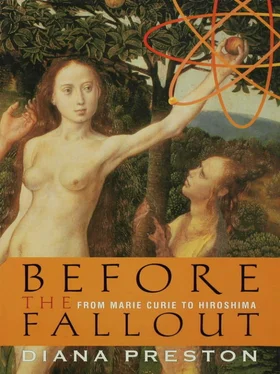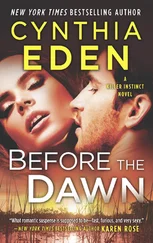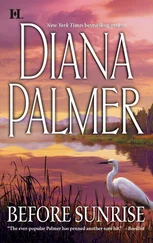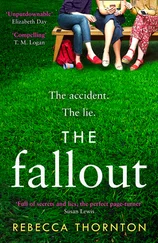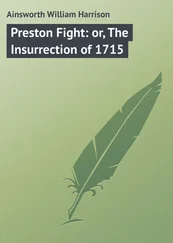Diana Preston
BEFORE THE FALLOUT
from MARIE CURIE to HIROSHIMA
To Michael,
my husband
and
writing partner
Our imagination is stretched to the utmost, not, as infction, to imagine things which are not really there, but just to comprehend those things which are there.
—Richard Feynman
First I should acknowledge the collaboration of my husband, Michael, in both the research and the writing of this book. Without him I could not have undertaken it.
I am also indebted to many others: Hans Bethe, Robert Christy, Bertrand Goldschmidt, Philip Morrison, and Sir Joseph Rotblat for talking to me about their personal experiences of working on the Allied bomb program; Lorna Arnold, formerly the U.K. Atomic Energy Authority’s official historian, for her generous help and advice; and Arnold Kramish and Carl-Friedrich von Weizsacker for corresponding with me and answering my questions.
In the United Kingdom the staff and archivists of many libraries and organizations gave me their help: the BBC Written Archives Centre; the Bodleian Library, Oxford; the British Library; the Cambridge University Library; the archives of Churchill College, Cambridge; Liverpool University Physics Department (and Peter Rowlands in particular); the London Library; the U.K. National Radiological Protection Board; the Royal Society; and the U.K. National Archive.
In the United States I must thank the staff of the American Institute of Physics, in particular Julie Gass, for their generosity in sending me transcripts of oral interviews; the U.S. National Archives and Records Administration; the Library of Congress; and the Bancroft Library of the University of California.
Elsewhere I am grateful to the Niels Bohr Archive in Copenhagen, and especially Finn Aaserud, for making the recently released postwar letters from Niels Bohr to Werner Heisenberg so accessible; to Aubrey Pomerance of the Judisches Museum, Berlin, for information about Fritz Strassmann’s concealment in his apartment of the Jewish pianist Andrea Wolffenstein; to Yad Vashem in Jerusalem for a copy of the citation acknowledging Strassmann’s courage; and to the Deutsches Museum in Munich for access to formerly secret documents about the German atom bomb project from 1938 to 1945.
I have made every effort to contact holders of copyright, but with a story covering fifty years this is not an easy task. I hope that anyone I failed to find will accept my sincere apologies.
In Japan, I was touched by the kindness and hospitality of the many people we met there: Miho Nakano for translation and research and for welcoming us to her city; Kazuhiko Takano, deputy director of the Hiroshima Peace Memorial Museum, for insights into the prewar life and history of the city; Yoko Kono for guiding us around the Hiroshima Peace Memorial Museum; Emiko Ono for sharing with us her family history; Masanori Ishimoto of the Hiroshima City Museum of History and Traditional Crafts for telling us about the city’s artisans; Jun Fujita and Toshie Kawase for their childhood reminiscences; and Margaret Irwin of the Radiation Effects Research Foundation’s Archive Office, Hiroshima, for information about the early history of radiology in Japan.
I must also thank family and friends: Ulrich Aldag, Rhys Bidder, St. John Brown, Clinton Leeks, Kim Lewison, Graeme Low, Neil Munro, and Oliver Strimpel for their insights on the text; Eric Hollis for the loan of books; my aunt Lily Bardi-Ullmann for newspaper research in the United States; and my mother and parents-in-law for their support.
Lastly the help of our agents, Bill Hamilton and Michael Carlisle, was invaluable, and it has been a pleasure working with Michele Hutchison and the team at Doubleday in London and with George Gibson and his colleagues at Walker & Company in New York.
ON 6 AUGUST 1945, the Christian Feast of the Transfiguration, the Festival of Light, a young mother, Futaba Kitayama, looked up to see “an airplane as pretty as a silver treasure flying from East to West in the cloudless pure blue sky.” Someone standing by her said, “A parachute is falling.” Then the parachute exploded into “an indescribable light.”
The American B-29 bomber, Enola Gay, had just dropped “Little Boy,” a four-ton bomb which detonated with the explosive power of 15,000 tons of TNT over the Japanese city of Hiroshima. Pilot Paul Tibbets, who had the day before named his plane after his own mother, struggled to hold it steady as the first shock waves hit. Bathed in a bright light, he looked back and saw “a giant purple mushroom boiling upward like something terribly alive.” He switched on the intercom and announced to his shaken crew: “Fellows, you have just dropped the first atomic bomb in history.”
In Hiroshima, Futaba Kitayama felt her face become strangely damp: “When I wiped my face the skin peeled off.” Her eyes began to mist over and close as her face swelled. “Suddenly driven by a terror that would not permit inaction,” she staggered past writhing, flayed bodies as she tried to escape. To a doctor the pervasive stench of burned flesh was like “dried squid when it is grilled—the squid we like so much to eat.” By December 1945, about 140,000 inhabitants of Hiroshima would be dead, either as a result of the blast and the fires that followed, or of the insidious, silent effects of nuclear radiation.
When news of the bombing was announced, young Allied soldiers preparing for the invasion of Japan “cried with relief and joy. We were going to live. We were going to grow up to adulthood after all.” President Harry Truman told a group of sailors aboard the cruiser on which he was returning from the Potsdam Conference: “This is the greatest thing in history.”
Winston Churchill struck a more reflective note: “This revelation of the secrets of nature, long mercifully withheld from man, should arouse the most solemn reflections in the mind and conscience of every human being capable of comprehension.” Only three days after Hiroshima, and within days of giving birth to her second son, a New York mother wrote, “Torturing regrets that I have brought children into the world to face such a dreadful thing as this, have shivered through me. It seems that it will be for them all their lives like living on a keg of dynamite which may go off at any moment.”
Soon worries were widespread that the invention of the bomb had unleashed a Frankenstein monster capable of striking back at its creators in a wholesale and indiscriminate fashion. Although over the past sixty years such concerns have wavered in intensity and the source of the perceived threat has varied, the fear that a single plane or a single person with a suitcase can obliterate a city haunts us today. [1] In 1998 a Russian general revealed that the Soviet Union had previously developed a portable atomic bomb and that, by then, less than half of the more than 100 manufactured could be accounted for. Despite subsequent official Russian denials that any were missing and assurances that all would be destroyed by 2000, experts remain concerned.
The destructive flash that seared Hiroshima into history was the culmination of fifty years of scientific creativity and more than fifty years of political and military turmoil. Generations of scientists had contributed to that moment in physics. Yet, when they first began to tease out the secrets of matter not even future Nobel Prize winners could have predicted how their pioneering insights would combine with exterior events to produce such a defining moment in history. Like all in this story, they were only human.
Читать дальше
